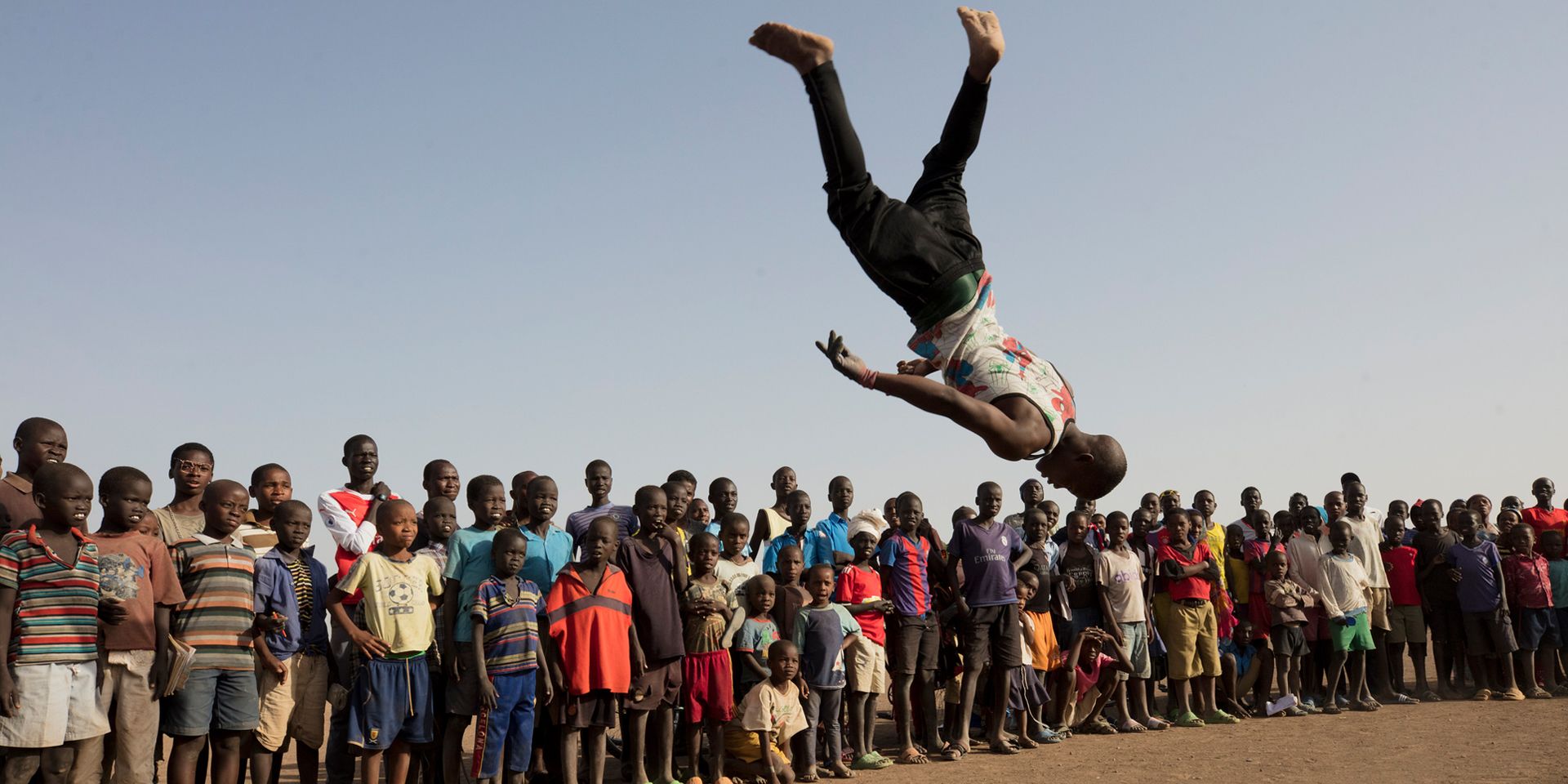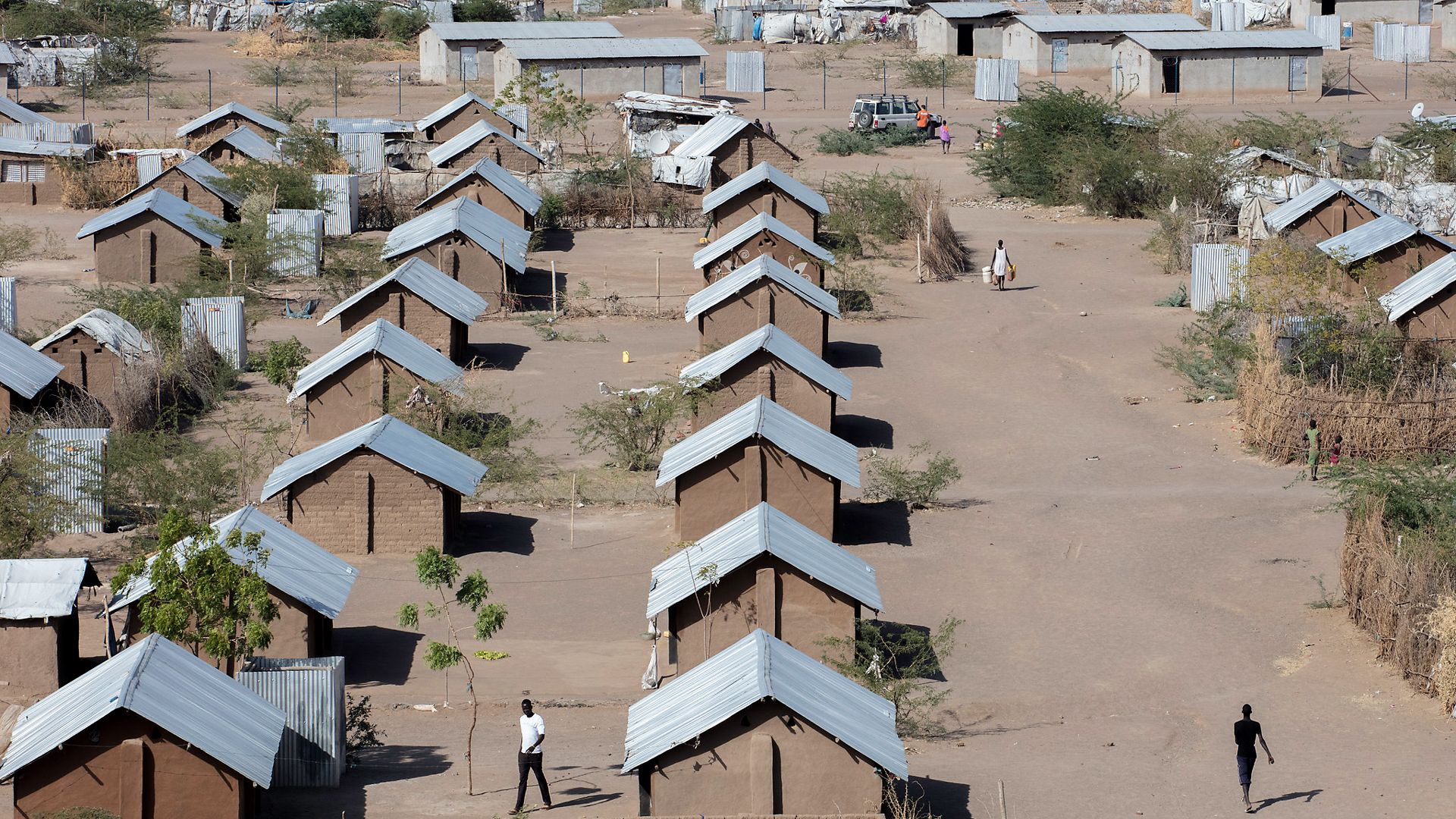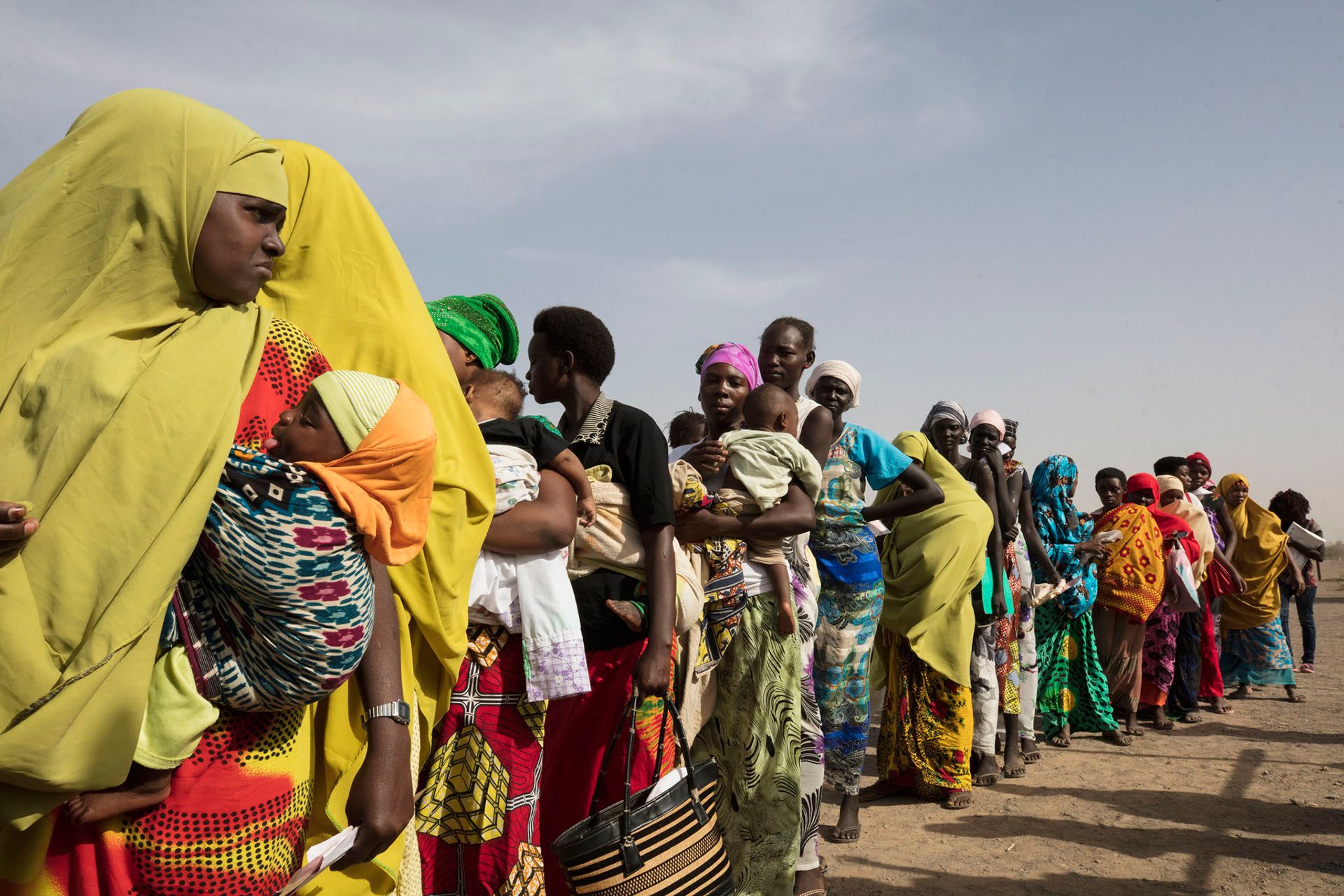By Neha Sud, IFC Communications
Safi Kisasa fled conflict in the Democratic Republic of Congo for Kenya, only to end up in Hong Kong. Not the Asian metropolis, but its namesake—a bustling business and residential district in Kenya’s Kakuma refugee camp.
“There were so many shops and traders that refugees started calling the neighborhood ‘Hong Kong’,” says Kisasa, who is known to her friends as Mama Safi.
Mama Safi arrived at Kakuma in 2011, tired and penniless, after walking hundreds of miles from her village in Eastern Congo to a fishing boat to Tanzania and ultimately to cramped mini-buses that drove her to Kenya. The arduous journey took an entire year. But once UNHCR—the UN refugee agency—moved her to a shelter in “Hong Kong,” she couldn’t wait to get to work.
Kakuma’s location in the arid Turkana county in northern Kenya means farming is tough, so many refugees rely on their skills to earn a living. Mama Safi tried selling dried fish and hand-stitched clothes, but soon found that baking was her bread and butter.
Five days a week, at dawn, Mama Safi and her 10 employees (also refugees) knead, shape, and slide 250 loaves of bread into two wood-fired ovens in her backyard. By the time Mama Safi’s bread is loaded onto a motorcycle for delivery, shutters are opening in “Hong Kong”—revealing grocery stores, mobile phone dealers, carpenters, tailors, and even barbershops. It looks less like a refugee camp and more like a market.
Changing Mindsets
Redefining the idea of the private sector in this context is central to Kakuma’s economic potential. “We tend to see the private sector as something sophisticated, coming from outside,” says Raouf Mazou, UNHCR Representative for Kenya. “But, most times, it is built on initiatives of individuals who want to make money using what they know best, like a refugee who bakes bread.”
In his 26 years with UNHCR at various locations, Mazou has often had to counter negative public perceptions of refugees and the work they are capable of doing.
“We need to change the mindset that refugees are sitting at the camp, doing nothing but receiving assistance,” he says. “Many of them are, in fact, running businesses and creating jobs for others. The important thing is to formalize their enterprises.”
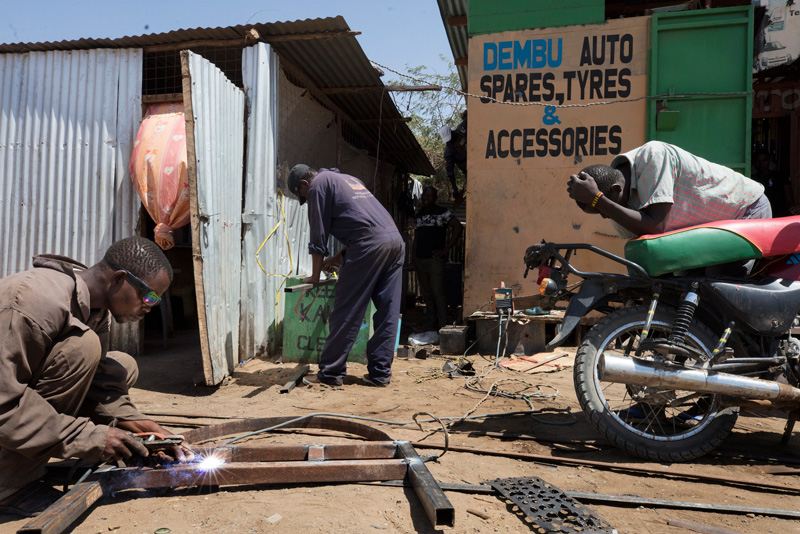
IFC’s conclusions build on Mazou’s observations. Researchers found 2,100 small shops in Kakuma camp. Twelve percent of refugees surveyed identified themselves as business owners. The number may seem small, but it is a noteworthy achievement considering that most refugees arrived with little more than the clothes on their backs and have limited rights to move or own businesses or property.
To encourage this nascent entrepreneurship, IFC is working with the Africa Enterprise Challenge Fund to establish a business competition to attract firms that will engage in Kakuma. Winners will earn grants, soft loans, and hands-on business coaching. The competition will launch in November 2018, and it will be open to Kenyan companies and social entrepreneurs, as well as refugee and host-community entrepreneurs.
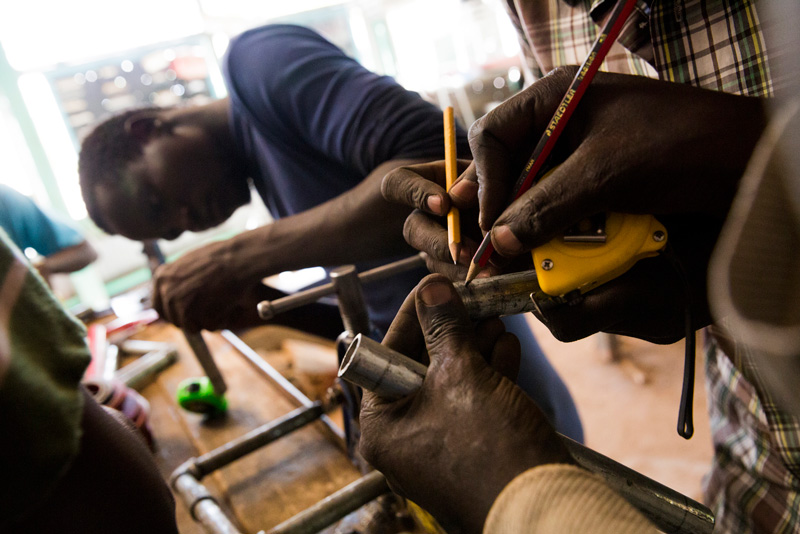
Work to Live
Annonciata Mukurangarambe, or Mama Bobo, is a Rwandan refugee who recently resettled in the United States. When she arrived at the camp in the 1990s, she put her four children through private school by making and selling handbags. Work, for her, was more than a livelihood. It gave her a reason to live.
“As a refugee, you go through many bad things, and sometimes it can develop a sickness in you,” she says. “But if you work, you don’t feel useless. You see that you can have a life ahead, and you don’t need to depend on UNHCR for everything.”
Self-reliance is critical for refugees, many of whom realize that they may never return home.
The word “Kakuma” means “nowhere” in Swahili. When the camp opened in 1992, to take in thousands of Lost Boys fleeing Sudan’s gruesome war, it certainly felt like it.
If you work, you don’t feel useless.”— Annonciata Mukurangarambe, a Rwandan refugee.
The Lost Boys were just the beginning. In 1993, Ethiopians arrived, escaping the aftermath of a collapsed government. Four years later, a succession of Somalis, Rwandese, Burundians, and Congolese came. Then the South Sudanese arrived in big numbers in 2013.
Today, the camp is home to over 180,000 people from 19 countries.
Kakuma’s vibrant economy has grown over time. “Hong Kong” has become a one-stop-shop for everything from hairclips to handsaws. The Ethiopian market has the best macchiatos. The Somali market is where you get cheap cell phones.
Families have grown, too. Generations have been born in Kakuma—a trend that UNHCR identifies as a “protracted refugee situation,” in which 25,000 or more refugees from the same nationality have been in exile for five consecutive years.
Refugee entrepreneurs not only support themselves but also their hosts. The IFC study indicates that refugees often hire Turkana locals to work with them. They also buy livestock, wood, charcoal, and other commodities from the Turkana.
Business in the camp and town revolves around consumer goods, which account for half the spending of refugees and townspeople alike. The market for these goods is valued at more than $26 million per year.
Banking on Kakuma
Despite the refugees’ potential as entrepreneurs, access to finance remains limited—and financial literacy among refugees remains low. Even though there’s significant demand for credit, the market is informal. Refugees tend to borrow money from friends and family, or from informal institutions.
For those seeking financing, Equity Bank, the only financial institution in Kakuma, fills a critical gap. “We do business with both refugees and the host community,” says Martin Gitobu, Equity Bank’s branch manager for Kakuma. “We allowed refugees to open accounts using alien IDs.”
Equity Bank also spreads its risk by co-lending with NGOs and UN agencies, which provide capital for the loans. The innovative arrangement is paying off. Since the bank opened its doors in 2015, 20,000 refugees and 60,000 residents of Kakuma town have opened accounts. The bank has made 1,000 loans to refugees, and 2,500 loans to people living in town. Loans range in size from $50 to $1,200. Gitobu says that refugee loans have a repayment rate of 90 to 95 percent.
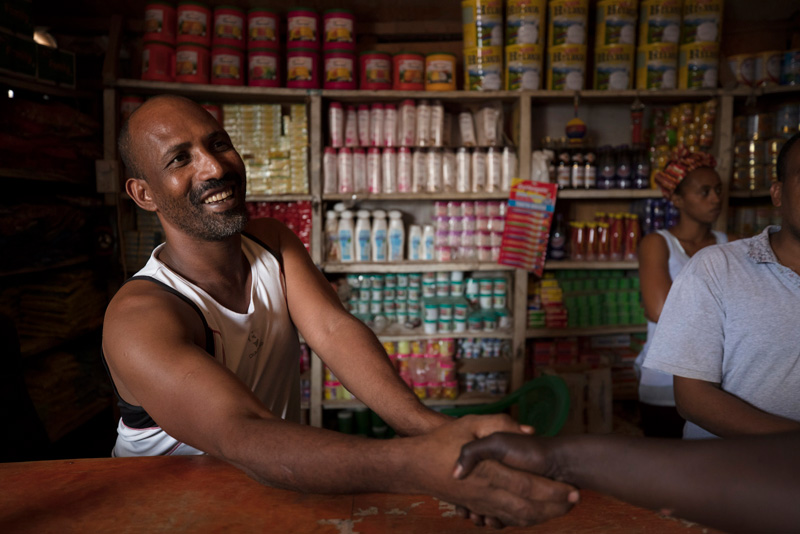
Mobile banking presents another potential area of investment. Although 69 percent of refugees and 85 percent of Kakuma town residents have mobile phones, only a third use them for mobile banking or money transfers.
Mama Safi’s bakery business is among the enterprises that has secured a loan from Equity Bank—and she’s using it to expand and employ more refugees.
“We’ve always had problems finding money to grow,” says Mama Safi. But now, with a financial partner, she’s hopeful. “We don’t want to stay a small family enterprise. We want to build a business that can go very far.”
Join the conversation: #IFCmarkets
Published in May 2018
